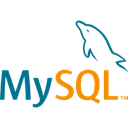Uncovering the Best Starcounter Alternatives for Real-Time Database Needs
Starcounter is a powerful database system designed for real-time applications, handling thousands or millions of simultaneous users in demanding environments like online stores or banking. Its focus on data consistency and high-volume transactions makes it a robust choice. However, for various reasons—be it cost, specific feature requirements, platform compatibility, or the desire for open-source solutions—many developers and businesses seek strong Starcounter alternative options. This article explores some of the top contenders that offer similar capabilities or excel in specific areas where Starcounter might not be the ideal fit.
Top Starcounter Alternatives
Whether you're looking for a relational powerhouse, a flexible NoSQL solution, or a lightweight embedded database, there are numerous excellent alternatives to Starcounter. Let's dive into some of the best options available today.

DBeaver
DBeaver is a versatile, free, and open-source universal database tool that serves as an excellent Starcounter alternative for database management and SQL client needs. It supports a wide array of databases, including many that could replace Starcounter's backend. Available on Mac, Windows, and Linux, DBeaver boasts features like data export/import, autocompletion, ER diagrams, and SSH tunnel support, making it an indispensable tool for developers and administrators working with various database systems.

SQLite
SQLite stands out as a lightweight, self-contained, and serverless SQL database engine. As a free and open-source Starcounter alternative, it's perfect for applications requiring an embedded or in-memory database. SQLite is highly cross-platform, supporting Mac, Windows, Linux, Android, and iPhone, and offers features like an in-process file-based system and relational database capabilities, making it ideal for mobile and desktop applications where a full-fledged server isn't necessary.

PostgreSQL
PostgreSQL is a powerful, open-source object-relational database system that serves as a robust Starcounter alternative for complex, high-performance applications. With decades of active development, it offers a proven architecture and advanced features for data integrity and concurrency. Available for Free on Mac, Windows, Linux, and BSD, PostgreSQL is an excellent choice for applications demanding enterprise-grade relational database capabilities.

MySQL Community Edition
MySQL Community Edition is a widely adopted open-source relational database management system, often considered a go-to Starcounter alternative for web and enterprise applications. Utilizing InnoDB technology, it provides high performance, reliability, and ease of use. It's free and available on Mac, Windows, Linux, and BSD, offering robust relational database features ideal for scalable web services and data-driven applications.

MongoDB
MongoDB is a leading NoSQL document database, offering significant scalability and flexibility compared to traditional relational systems like Starcounter. Its ability to store data in flexible, JSON-like documents with dynamic schemas makes it an excellent Starcounter alternative for applications with evolving data structures or big data requirements. MongoDB is free and open-source, supporting Mac, Windows, Linux, Web, and BSD platforms, and is ideal for real-time analytics, content management, and mobile applications.

MariaDB
MariaDB is a community-developed, open-source relational database management system, forked from MySQL, making it a highly compatible and often preferred Starcounter alternative for those seeking a free and powerful SQL solution. It offers enhanced performance, new storage engines, and more features than MySQL in some aspects. Available on Windows, Linux, and BSD, MariaDB is a robust choice for a wide range of applications, from web platforms to complex enterprise systems.

Sequel Pro
Sequel Pro is a fast and user-friendly Mac database management application specifically designed for MySQL databases. While not a direct database engine like Starcounter, it serves as an excellent free and open-source tool for managing MySQL instances, which can often be used as a Starcounter alternative backend. Its features include a native application experience, SSH tunnel support, and a visual query builder, making database administration efficient for Mac users.

Microsoft SQL Server
Microsoft SQL Server is a comprehensive relational database management system that delivers on Microsoft's Data Platform vision. It's a strong Starcounter alternative for organizations deeply integrated into the Microsoft ecosystem or those requiring robust enterprise-level features, including advanced analytics and data warehousing. Available on Windows and Linux (Freemium), SQL Server supports storing structured and semi-structured data, catering to a wide range of business needs.

CouchDB
Apache CouchDB is a distributed, fault-tolerant, and schema-free document-oriented database, offering a compelling NoSQL Starcounter alternative. Accessible via a RESTful HTTP/JSON API, it's designed for high availability and robust data replication, making it suitable for applications that need to sync data across multiple devices or locations. Free and open-source, CouchDB supports Mac, Windows, Linux, Android, and BSD, and features incremental map/reduce for powerful querying.

RethinkDB
RethinkDB is a real-time open-source database that pushes JSON data to applications in real-time, making it an excellent Starcounter alternative for building live, interactive web applications. By eliminating the need for constant polling, RethinkDB enables more efficient and scalable real-time experiences. It's free and available on Mac, Windows, Linux, and BSD, focusing on simplifying the creation of highly dynamic data-driven applications.
Choosing the best Starcounter alternative depends heavily on your specific project requirements, existing infrastructure, budget, and team expertise. Each option presented here offers unique strengths, from traditional relational integrity to flexible NoSQL architectures and real-time capabilities. Evaluate their features, community support, and licensing to find the perfect fit for your real-time database needs.